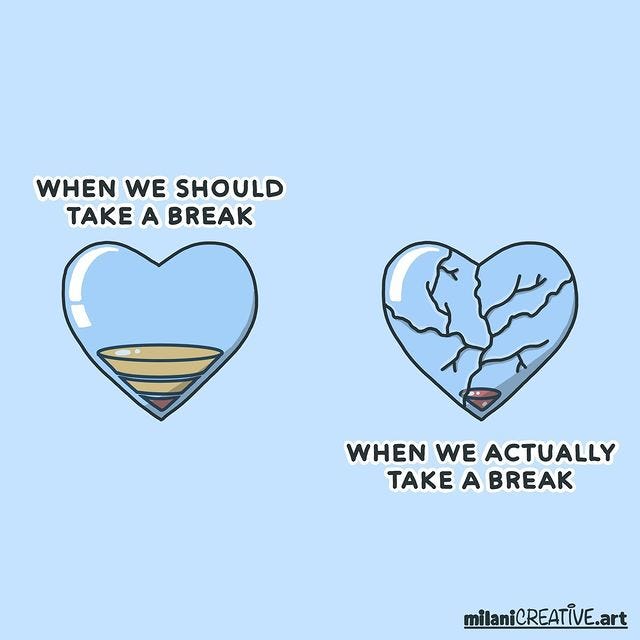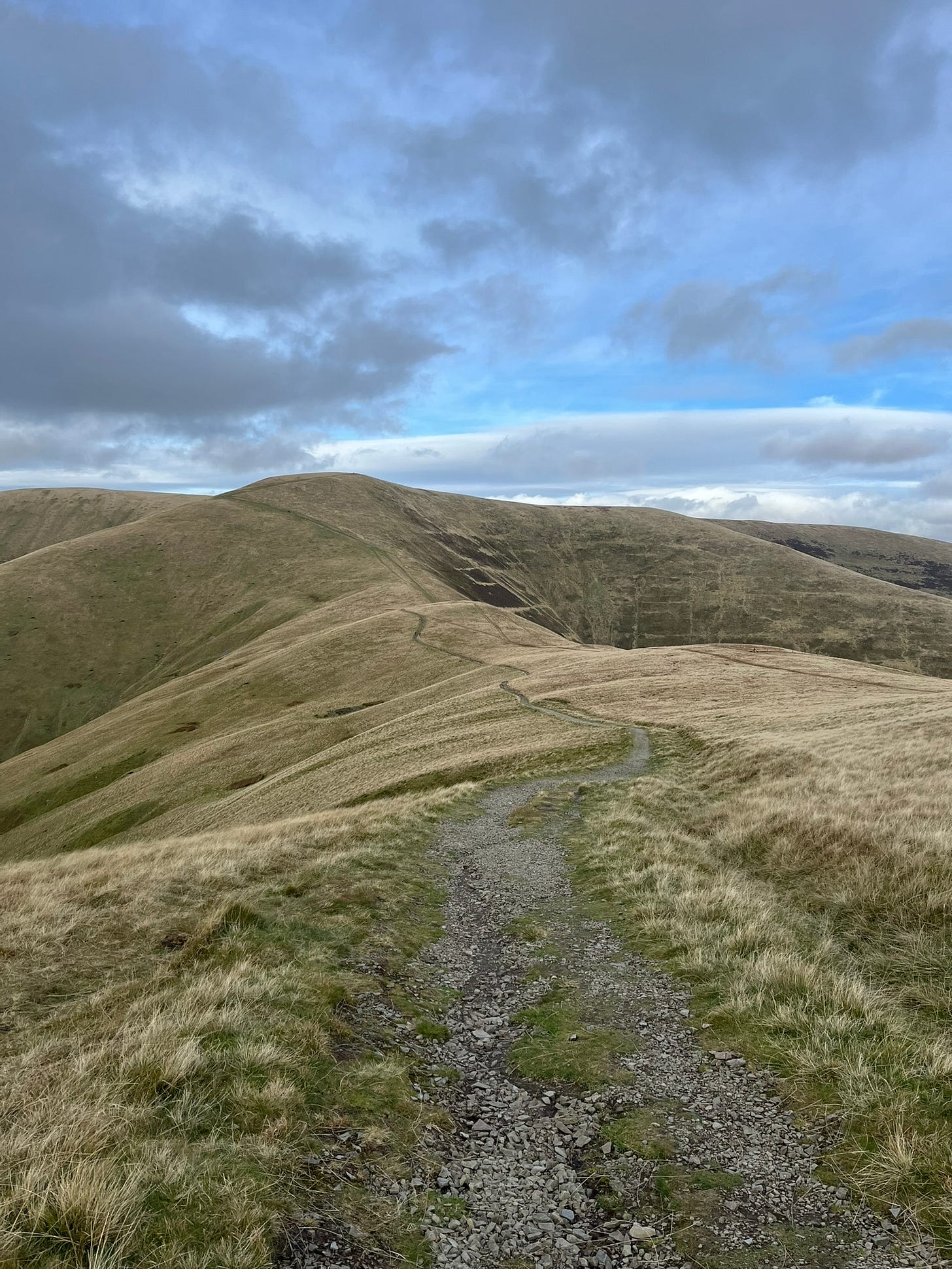How to deal with losing your mojo rojo...
There's some bad advice out there - do what you enjoy
I wasn’t going to write about ‘losing your mojo’ this week, but I’ve seen some terrible advice out there in the past few days and I felt the need to balance it.
First of all, it’s hard to discuss a phrase that has no official definition.
“Mojo” meanings:
“Influence, especially magic power.”
“A magic charm, talisman, or spell.”
And my personal favourite: “A Cuban sauce or marinade containing garlic, olive oil, and sour oranges.”
In all seriousness, mojo rojo and mojo verde sauce from the Canaries is excellent and when combined with Canarian potatoes (papas arrugadas), it is up there with one of the best combinations.
For this, and the general slang term, ‘mojo’ simply means enthusiasm, vigour, drive, and the igniting of passions. I would argue it’s different from motivation because that boils down to a purpose, whereas 'mojo’ is more of a feeling.
The two often go hand in hand but they’re not the same.
Personally, (and after consulting others on this subject recently) I believe the loss of mojo is heavily aligned with needing a break.
In short, it’s about unbalanced mental energy and likely the psychological load being too high over a period of time. Generally, people don’t lack enthusiasm when they’re firing on all cylinders and thriving, it’s when things become tough and a drag.
Sometimes it could be related to physical fatigue, but again, it runs parallel, it’s not the same as feeling physically tired.
In sport, it’s common in the post-event phase, when you’ve achieved the goal and suddenly have to adjust to not having the target in the distance any longer. But the reality is that it crops up anytime.
If normal life becomes hectic and stressful for an extended period you may well feel yourself losing enthusiasm and passion for whatever your hobby or interest is because you can’t keep up the same amount of energy and sacrifice required to spin the plates.
There are many cliches out there to describe needing a break and feeling burned out, such as ‘you can’t pour from an empty cup’, and so on, which all feed into the same idea.
I know this feeling well… I have lost mine many times, including at present.
I’ve recently seen people quoting if you’ve lost your mojo “you have to get outside and find it,” and “energy creates energy.”
It’s bad advice. Humans don’t regain enthusiasm and passion by forcing themselves to do things they’re not interested in or don’t have the energy for. Since enthusiasm is closely associated with mental energy and psychological load, it’s the opposite - humans regain enthusiasm when energy balance is restored. It’s about rest.
Of course, working out the root cause is going to get you closer to restoring the energy balance as soon as possible. Whether it’s stress, workload, managing priorities and expectations, and so on.
In sport, there are times when all you need is a word with yourself and to get your ass out of the door. Generally, that is down to unfavourable external forces (like weather) rather than a lack of passion. Again, forcing yourself to do activities you don’t want to do when your energy is unbalanced is unwise.
Back to basics
It’s not a quick fix. If it’s post-event blues then this is pretty simple, but if it’s an extended period of what is essentially mental fatigue, then it’s likely going to take as long to recover.
It’s about doing less, not more.
Imagine a pyramid - when training ramps up, to meet the targets, we commonly stop doing some of the base-level things to achieve the top-level things. But you can’t get to the top of the pyramid if the bottom half has disappeared.
Training is tough and it usually means we have to cut out or say no to some of these things to stay on track. Life is too short to take running seriously 100% of the time, even professional athletes don’t.
The basics are at the foundation of the pyramid. They are eating well, sleeping well, and recovering well.
Lost enthusiasm is usually a result of neglecting other hobbies, interests, and downtime activities you enjoy and likely haven’t done for a while (gardening, reading, spending time with your family, having lunch out…). I reckon your unconscious mind knows this and is finding a way to present it to you in the format of a feeling.
“A change is as good as a rest”, my former Spinning instructor used to say. It doesn’t mean continue pushing at full speed in another activity; in exercise terms, it means active recovery and it applies nicely to this.
It means go and do something else you enjoy.
Another thing to consider if you want to exercise is doing different types of activity. That means light runs, or walk instead - you get the same benefits, if not more. Strength and conditioning, go swimming, paddle boarding, whatever.
For exercise, my go-to is spinning. I’ve been doing it for 15 years and it’s well and truly part of my ‘basic’, as is doing some (light) weightlifting at the gym. It makes me feel like I’ve got my feet on the ground and building from the ‘base’ up, like a hard reset, and it’s also great for noticing any imbalances I need to address.
Equally, I might just spend a few days reading books in my downtime and cooking some new recipes because I find those activities relaxing.
And finally, once the essentials of food, drink, and sleep are on track for a few days, think about shaking your training up a little going forward. Either by doing the above with different types of exercise or after your recovery phase, change up your training plan. No good coach would ever say no to this.
Try some speed work and mix your sessions up on different types of terrain. Go to a club/group run. If you’re doing long runs, take them elsewhere, do point-to-point instead of loops or laps, or add in a drill or change of pace part-way through to break it up (this works especially well with long-distance swimming).
The passion and fire in the belly will come back after a few weeks if you build a solid foundation, and you will be mentally and physically better for it when you feel ready to go again.






